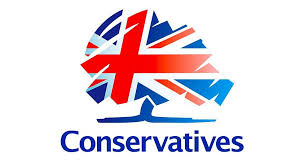Election 2015: Which party presses the right technology buttons?

Five years ago, if your MP had their own web site that would have placed them in the technological fast lane. But now technology is a mainstream issue and features - to varying degrees - in the party manifestos ahead of the general election. Here are a few of the technology highlights to be found in the plans of the major parties.

The Conservatives are big on the internet. "We will deliver a faster internet, to help you work and communicate more easily", they say in their manifesto. "We will secure the delivery of superfast broadband in urban and rural areas to provide coverage to 95 percent of the UK by the end of 2017, and we will ensure no one is left behind by subsidising the cost of installing superfast capable satellite services in the very hardest to reach areas."
When it comes to issues like data retention and the use of personal data, the Conservatives are, as you would expect, firmly on the side of law and order.
"We will keep up to date the ability of the police and security services to access communications data - the 'who, where when and how' of a communication, but not its content," the manifest says.
"Our new communications data legislation will strengthen our ability to disrupt terrorist plots, criminal networks and organised child grooming gangs, even as technology develops. We will maintain the ability of the authorities to intercept the content of suspects' communications, while continuing to strengthen oversight of the use of these powers." It doesn't say how it plans to do this.
The Liberal Democrats waste no time in going one step ahead in their promises with a pledge to "complete the rollout of high-speed broadband, to reach almost every household (99.9 percent) in the UK as well as small businesses in both rural and urban areas" - as opposed to the Tories 95 percent.
On data retention and related issues the LibDems also take a different tack: they promise to oppose the "so-called Snooper's Charter" which is better known as the Communications Data Bill and will continue to do so, they say.
"Requiring companies to store a record of everyone's internet activities for a year or to collect third-party communications data for non-business purposes is disproportionate and unacceptable, as is the blanket surveillance of our paper post," the party maintains.
"We are opposed to the blanket collection of UK residents' personal communications by the police or the intelligence agencies. Access to metadata, live content, or the stored content of personal communications must only take place without consent where there is reasonable suspicion of criminal activity or to prevent threats to life."
Labour said it will ensure that all parts of the country benefit from affordable high-speed broadband by the end of the Parliament in 2020.
The party has few doubts about the strength of the UK's place in the digital world saying that as a nation "we have been quick to seize the opportunities of the internet" and to use our strengths such as "world-leading universities, an outstanding science research base, an open economy with one of the highest rates of foreign direct investment in the world, and many successful global companies".
"And we will use digital technology to create a more responsive, devolved, and less costly system of government," Labour's manifesto says, without going into detail on how this will be achieved.
"Scientific discovery and technological innovation will drive economic advancement in this century, we will introduce a new long-term funding policy framework for science and innovation, providing the stability and continuity that our companies and research institutes need to succeed".
As with the other parties, the SNP would like to see a faster roll-out of 4G and pledge to support "wider and affordable access to the internet in our most disadvantaged communities, and for a universal service obligation to be applied to telecoms and broadband providers ensuring everyone is able to access the communications they need".
That is why, "we are investing in superfast broadband, so that at least 95 percent of premises across Scotland will be able to access fibre broadband by the end of 2017".
And the SNP "do not support Tory plans for the reintroduction of the so-called 'snoopers' charter', which would see all online activity of every person in the UK stored for a year". There is no need for that, the party argues, and instead, "we need a proportionate response to extremism" they says and so it "will support targeted, and properly overseen, measures to identify suspected extremists and, if necessary, examine their online activity and communications."
Neither broadband or the issues around data and data retention feature in the UKIP manifesto.The party does, however, get hot and bothered about the issue of tax avoidance by large corporations and of course, as we know, many of the worst offenders in that area are new technology companies.
"The public has every right to be angry about this. UKIP will not allow large companies to continue getting away with paying zero or negligible corporation tax in Britain," the party says and proposes a number of measures for dealing with it.
Conclusion
New technology continues to have a profound effect on the UK and the UK economy but the manifestos don't provide much in the way of profound analysis. Perhaps just as the voting process itself - still conducted by way of a scrap of paper shoved in a tin box - shows, politics and tech just don't mix.
Further Reading:
Could broadband really be the issue that decides the General Election?